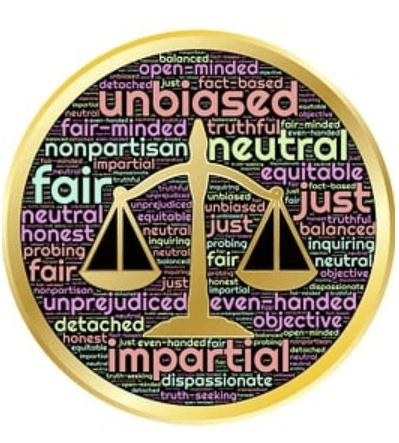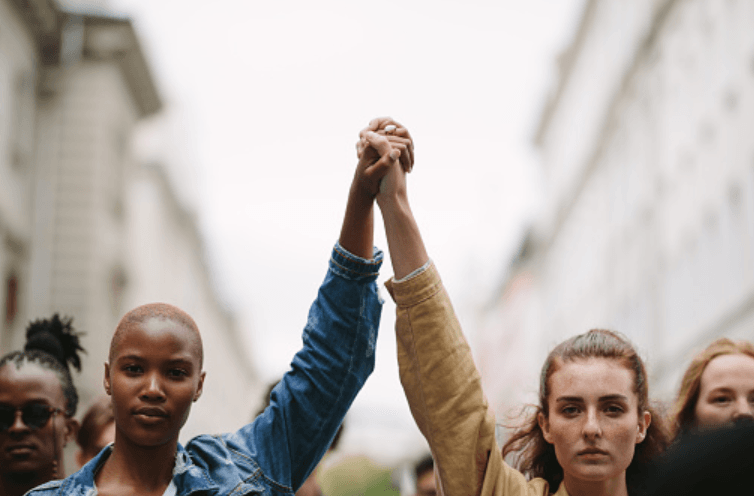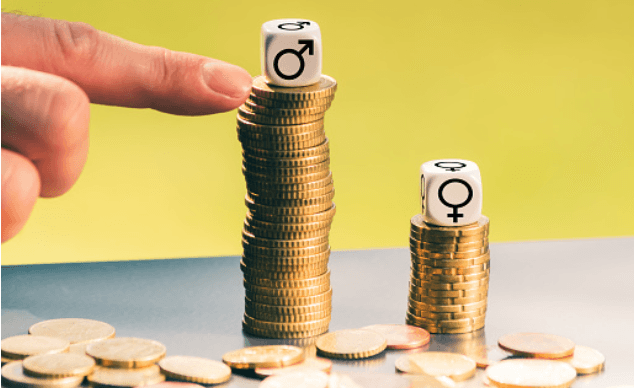THE SICK REALITY OF GENDER INEQUALITY IN BOTH THE PAST AND PRESENT
This article will inform you all about gender inequality in both past and the present.

This article will inform you all about gender inequality in both past and the present.
Society has historically viewed women as the weaker sex. She is now playing second fiddle to the men. In and outside of our homes, she is mistreated, humiliated, raped, and subjected to discrimination. Due to the perception that boys should only play sports like football, hockey, and cricket, girl children have been excluded from participating in these activities even in schools and many other aspects of society. Women in India and successful women all around the world have demonstrated some excellent qualities when given the proper education and a supportive environment. Women have always been driven and ready to work in the corporate sphere.
Women still face significant obstacles in the workplace, so it is our duty to ensure that they have access to their rights and are treated equally in society. Turning gender inequality into gender equality is our goal. Although a person's sex is entirely a biological word, society has expectations for how boys and girls are expected to act. These social and cultural expressions related to sex, which are used to describe a person's gender, are not based on biology. People have different expectations based on their gender due to the social construct of gender. Sex is determined by nature, whereas gender is determined by society.
TABLE OF CONTENT

One of the most well-known aspects of gender inequality is voting rights and how women were prohibited or prevented from voting. The ability to vote gives you the chance to take part in choosing the representatives for your interests in government. Given that the government has the power to make decisions that affect people's daily lives, it is essential that those who will be affected (and who are of voting age) have a say in who makes such decisions.
Voting rights for women were finally established much later than for men, and this was sometimes the result of arduous struggles. In Saudi Arabia, women fought for the right to vote until 2011. While many of us assume that formal equality has existed, this serves as a reminder that we have fought for a long time.
Since their roles were frequently perceived as being to raise children and run the home, while the husband produced the income and operated as the head of the family and key decision-maker, historically, women's livelihoods were significantly dependent on who they married.
Wives who get married lose their rights to own property and maintain their earnings since they become the husbands' property and frequently merge into one person in the eyes of the law.
A husband could not rape his wife in the eyes of the law because it might be assumed that she gave consent after they got married. This is because a woman's body was also the husband's property. In Germany, spousal rape became unlawful in 1997. Rape was once thought to only affect women and be considered "extramarital intercourse." The law was revised in 1997 to remove the marriage exception and make it gender-neutral, which made it possible for married people to face punishment as well.
Education has also been gendered, with certain countries giving girls fewer educational opportunities than boys. When parents must pay for their children's educationon, the cultural environment and their financial situation have a significant impact on schooling as well. The overall picture of the world demonstrates that women outnumber men in terms of tertiary education. In Britain, where educated, bachelor's, and master's degree holders were more likely to receive a home education centered on their anticipated future roles as future spouses and mothers, or given a range of achievements, such as studying music. Science and maths, on the other hand, were frequently reserved for men who intended to pursue a job. Schooling and social class were similarly linked, with working-class women receiving education (if any) relevant to their expected future, such as domestic work. Girls were not academically challenged, and it was even believed that their inferior brain power rendered them unfit for several subjects.

There is no denying that things have changed; where women were formerly not permitted to leave the house, they are today employed and on a level with men. But we shouldn't continue to disregard that. We still don't have complete gender equality. Women who work in offices also experience prejudice based on gender. For the same work profile, there have been situations where women were paid less than men. Even though it is against the law, gender-based workplace discrimination still occurs frequently and widely, especially when it comes to women. Women's work is also frequently undervalued, and they frequently hold fewer jobs overall than men. To extend the discussion, discrimination now affects both men and women. People who identify as LGBTQ face discrimination. Let's examine a few pieces of data provided by the USA in the aforementioned situation.
In a 2017 survey, 68.5% of LGBTQ respondents who had experienced prejudice said it had a negative impact on their mental health. 46% of LGBTQ employees face job discrimination. There is a greater likelihood that a woman who identifies as non-binary or who is transgender may experience discrimination. As of June 2020, 75 nations in the world, including the United States, forbade job discrimination based on sexual orientation. They do, however, experience prejudice and humiliation in many other forms. Make people uncomfortable by starting with discrimination. Cases of these people being subjected to discrimination in medical care have also been documented.
People in the LGBTQ community experience more mental and physical health issues since they are not accepted by society in schools and colleges, and even when they are, they are subjected to gender-based harassment.

Regardless of whether you are single or married, divide responsibilities evenly. It is your duty as a guy to divide the workload. You should help your mother and sister around the house since it motivates them and enables you to appreciate their efforts and feelings. Women experience the same thing. Both should divide up the work and finish it. Women typically take care of the home and do all household chores in many households. This is incorrect since men get lauded for their achievements while women carry the bulk of the strain. Men can only understand their partners' responsibilities and work ethic by sharing responsibilities and putting themselves in their partners' shoes. Men put themselves in the shoes of women by sharing responsibilities, and this is the only way to comprehend your partner's responsibilitiess and hard work. It will enhance your life to believe that you should respect and assist women. Given that men and women perform equivalent tasks, this largely favors gender equality.
Second, give everyone a fair chance. The only reason why males outweigh women in the physical realm is that they have more opportunities, not because they are more capable or stronger. Compared to men, women do not have as many commitments. Even for academic reasons, some societies ban their daughters from working outside the home. Women are not allowed to enroll in schools or other educational facilities. Few women are able to pursue further education, and when they do, there are no places for them to practice their trade. Guys are more successful because of this. Women can make their mark in the physical sectors if we provide them with the same opportunities and platforms as males.
Third, men need to stop utilizing violence and sexual assault in order to combat gender inequality. Physical aggression is the worst kind of racism; men utilize their physical might to control women; they have no regard for the women's feelings and impose their will on them, such as through child marriage. It is a requirement for young women to wed older men in order to have a stable future. This is untrue; women only have a secure future if they find the right life partner and have enough knowledge while they are young. Women should only receive an education in the same manner as men. Women are free to decide when and with whom they want to get married. Women will use this right if society gives it to them.
People discuss how women should have an equal and fair opportunity to participate in all of the same activities as men. We discussed responsibility sharing before. Do we actually mean what we say? Gender discrimination is still prevalent in India. Despite all the discourse about equality, we see that education for boys is chosen above education for girls. The biggest concern of the parents for their daughter is when she will marry. We continue to see child marriages. According to the statistics, 1.5 million females under the age of 18 marry in India each year. Violence against women is still common and contributes to gender inequality. We believe that ending violence against women will help us achieve gender equality. Are we there yet? No, women continue to be victims of many sorts of violence. According to the most recent statistics supplied with HT by Bharosa Cell, the total number of cases reported under "serious crimes against women" in 2022 is 659. Gender discrimination will not go away simply by making ideas; we must take action to entirely eliminate it.

The main question is that. But we may respond since it has been clear since the Middle Ages that women do not enjoy the same rights as men.
The mindset hasn't altered up until now. Men and women can be distinguished from one another in many ways. People still have a poor mentality even in this contemporary age. In some parts of India, society disapproves of women who work.
If a boy enters the house in the middlee of the night and no one questions him, it's okay. However, if a girl enters her home, everyone starts to interrogate her. If a girl is out alone at night, someone will either molest her or call her a prostitute behind her back.
Our religion, Hinduism, is one of a handful that worships goddesses, or female deities. The main issues facing our country, however, are gender discrimination, gender inequality, and female molestation.
Finally, I'd like to stress that since we are all just people, there is no superior or inferior race. It takes a lot of women to put up a good community or nation.
I hope through this article you got to know what gender inequality is and why it still exists. Gender inequality still prevails. In the past women faced gender inequality in different ways as compared to others. There are certain changes are required to curb gender inequality in our system. To know the changes please through the above article.